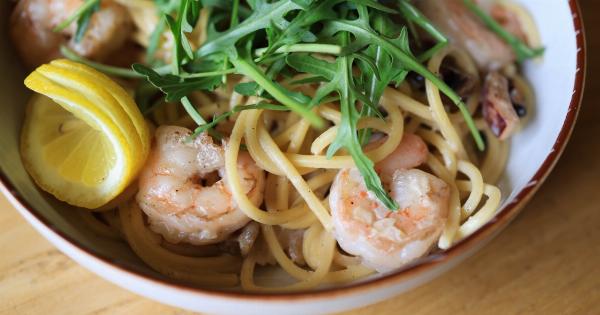It is often said that you are what you eat, and this holds true not only for humans but also for our canine friends. Just like with humans, the diet of a dog plays a crucial role in their overall health and well-being.
But have you ever wondered how your dog’s diet can also impact their personality? In this article, we will explore the fascinating connection between what your dog eats and their unique personality traits.
The Link Between Diet and Behavior
Before we delve into the specific ways in which a dog’s diet can affect their personality, it is important to understand the underlying mechanisms at play.
The food consumed by a dog serves as fuel for their body and affects various physiological processes, including brain function and hormone production. These factors, in turn, can influence a dog’s behavior and personality.
Nutritional Deficiencies and Behavioral Issues
Just like humans, dogs require a balanced and nutritious diet to thrive. When a dog’s diet lacks essential nutrients, it can lead to various health problems, including behavioral issues.
For example, a deficiency in certain vitamins and minerals can affect brain function and neurotransmitter production in dogs, resulting in mood swings, anxiety, and even aggression.
One common nutritional deficiency that can impact a dog’s behavior is a lack of omega-3 fatty acids.
These essential fatty acids play a crucial role in cognitive function and have been linked to improved mood and reduced anxiety in both humans and animals. A diet lacking in omega-3 fatty acids can lead to increased irritability and restlessness in dogs.
The Role of Macronutrients
In addition to essential vitamins and minerals, the macronutrients in a dog’s diet can also influence their personality. Macronutrients refer to the major nutrients required in larger quantities, including proteins, carbohydrates, and fats.
Proteins, for instance, are vital for the growth and repair of tissues in a dog’s body. They are also necessary for the production of neurotransmitters, which play a key role in regulating mood and behavior.
A diet that provides insufficient protein can result in muscle weakness, lethargy, and even mood disturbances in dogs.
Carbohydrates are another important macronutrient that can affect a dog’s behavior. While dogs are primarily carnivorous, they still require a certain amount of carbohydrates for energy.
The type and quality of carbohydrates in a dog’s diet can make a difference. Highly processed, high-glycemic carbohydrates can cause spikes in blood sugar levels, leading to hyperactivity and mood swings in dogs.
Lastly, dietary fats are essential for a dog’s overall health and well-being. Fats provide a concentrated source of energy and are necessary for the absorption of fat-soluble vitamins.
Moreover, certain fats, such as omega-3 fatty acids, have been found to have anti-inflammatory properties that can promote brain health and improve cognitive function in dogs.
The Gut-Brain Connection
Another fascinating aspect of the link between diet and personality in dogs is the gut-brain connection. The gastrointestinal tract is home to trillions of bacteria, collectively known as the gut microbiota.
Emerging research suggests that the composition of these gut bacteria can have a profound impact on behavior and mood.
Probiotics, often referred to as “good” bacteria, play a crucial role in maintaining a healthy gut microbiota. These beneficial bacteria help to break down food, synthesize essential nutrients, and regulate immune function.
Furthermore, studies have shown that the gut microbiota can influence the production of neurotransmitters, including serotonin, which is often referred to as the “feel-good” hormone.
Therefore, by promoting a healthy balance of gut bacteria through a proper diet, you can potentially improve your dog’s overall temperament and disposition.
A diet that includes prebiotics, which are substances that promote the growth of beneficial gut bacteria, can be beneficial for your dog’s gut health and ultimately their personality.
The Importance of Feeding Patterns
In addition to the actual content of a dog’s diet, the feeding patterns and routines can also impact their personality.
Free-feeding, which refers to leaving food out all day for dogs to eat at their own pace, can lead to behavioral issues in some dogs.
When food is constantly available, dogs may become possessive and guarded over their food, leading to aggression or resource guarding behavior.
On the other hand, scheduled feeding, where meals are provided at specific times, can promote a calmer and more balanced temperament in dogs. Scheduled feeding allows dogs to develop a routine, reduces food-related stress, and can even improve their training and obedience.
The Influence of Food Additives
In today’s pet food market, many commercial dog foods contain a variety of additives and preservatives. While these additives are generally considered safe for consumption, some dogs may be more sensitive to them than others.
Certain food additives, such as artificial colors and flavors, have been linked to hyperactivity and behavioral problems in both children and dogs.
If you notice a significant change in your dog’s behavior or mood after switching to a particular brand or type of dog food, it may be worth considering whether food additives could be playing a role.
Choosing dog foods with minimal additives and opting for natural alternatives can help maintain a stable and balanced personality in your furry friend.
Individual Variations and Breed-Specific Traits
It is important to note that while a dog’s diet can influence their personality, there are also individual variations and breed-specific traits to consider.
Each dog is unique, and genetics play a significant role in determining their inherent temperament.
Some breeds may naturally have more energetic or outgoing personalities, while others may be more laid-back or reserved. It is essential to take these breed-specific traits into account when assessing the impact of diet on a dog’s personality.
However, even within a specific breed, individual dogs can respond differently to various diets.
Observing how your dog reacts to a particular diet and being mindful of any changes in their behavior and overall well-being is key to finding the most suitable diet for them.
Conclusion
When it comes to our faithful companions, everything we do can have an impact on their health and happiness.
By understanding the intricate connection between a dog’s diet and their personality, we can make informed choices to support their overall well-being. Providing a balanced and appropriate diet, paying attention to macronutrients, promoting a healthy gut microbiota, and considering feeding patterns are all factors that can positively influence a dog’s personality.
Remember, just like with humans, a well-fed and nourished dog is more likely to exhibit a vibrant and delightful personality.































